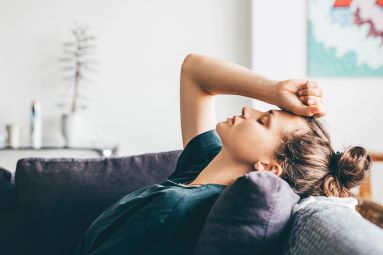Jonesboro, AR – (JonesboroRightNow.com) – May 8, 2024 – In an age where scrolling through social media has become about as routine as brushing your teeth, it’s important to acknowledge its profound impact on our mental health and our brain function. Endless scrolling and the dopamine rush of likes and shares has an additive allure that does actually rewire our neural circuitry in ways we’re only beginning to understand, and not necessarily in a good way.
The Influence of Social Media on Our Brain
Social media platforms are designed to capture our attention and keep us engaged for as long as possible. The constant stream of information and even the colors/lighting of the apps trigger our brain’s reward system to release neurotransmitters like dopamine. This creates a sense of pleasure and reinforcement – thus, we keep opening them back up. This process fosters addictive behaviors. A study in 2020 found that individuals who reported problematic social media use exhibited brain activity patterns similar to those seen in substance addiction.
After using it daily, we do become somewhat addicted. We find ourselves compulsively checking, being on these apps without even realizing our thumbs took us there, and having this weird, subtle anxiety when we’re disconnected. This doesn’t just apply to TikTok or Instagram, but X, Facebook, YouTube and now Threads. When it comes to our mental health, social media feeds distort reality and foster feelings of inadequacy. We compare our lives to the highlight reels of others, which can erode self-esteem and exacerbate feelings of loneliness, especially in children.
While it’s not always practical or possible to stop using social media completely, it’s important to acknowledge how impactful its use can be on our brains. It’s up to us to establish a balance that works in our own personal lives. Here are a few practical steps to find balance with your social media use to promote optimal mental and brain health (and also stop wasting so much time).
- Set Boundaries: Establish designated times for social media use and stick to them. Allocate specific periods of your day to check in, similar to checking your email or working, and limit browsing outside these time frames. I use time limits for my apps, which you can set on your phone. I only allow 1 hour of Instagram time a day, which is the app I use the most.
- Practice Mindful Consumption: Before mindlessly scrolling, pause and ask yourself why you’re reaching for your phone. Is it out of boredom or habit, or are you engaging with a certain goal of finding inspiration, checking up on friends, or looking up details an event? Mindful awareness of your purpose each time you pick up your phone begins to empower you to make conscious choices and break the cycle of automatic behavior.
- Digital Detox: Consider periodic detoxes from social media to reset your mental landscape. I just took a two week break from posting, and it was wonderful. I found myself more productive, happier, and more present. My mental health was better, and I felt less busy and scattered. You can designate weekends or specific intervals for complete digital disconnection, allowing yourself to recharge and recalibrate away from the digital noise.
- Rekindle Love for Activities That Don’t Involve Social Media: Be sure to find the joy of real-world connections and hobbies. Whatever that is for you, make the time for activities that nourish your soul, whether it’s spending time with loved ones, pursuing creative endeavors, or immersing yourself in nature. By gradually reducing social media time or at least being more intentional, you just might find yourself comparing less, slowing down, and smiling a bit more.
Being more mindful about our social media use gives us the strength to not fall into the trap of letting it use us. Instead of succumbing to the addictive nature of what seems like a necessity in our modern world, we can start to rewire the neurons in our brain to not become addicted to it, improving our mental health, happiness, and brain power.
For more tools on living a mindful life, head over to bethanydaviswellness.com.
Study: https://www.frontiersin.org/articles/10.3389/fnhum.2020.564629/full


